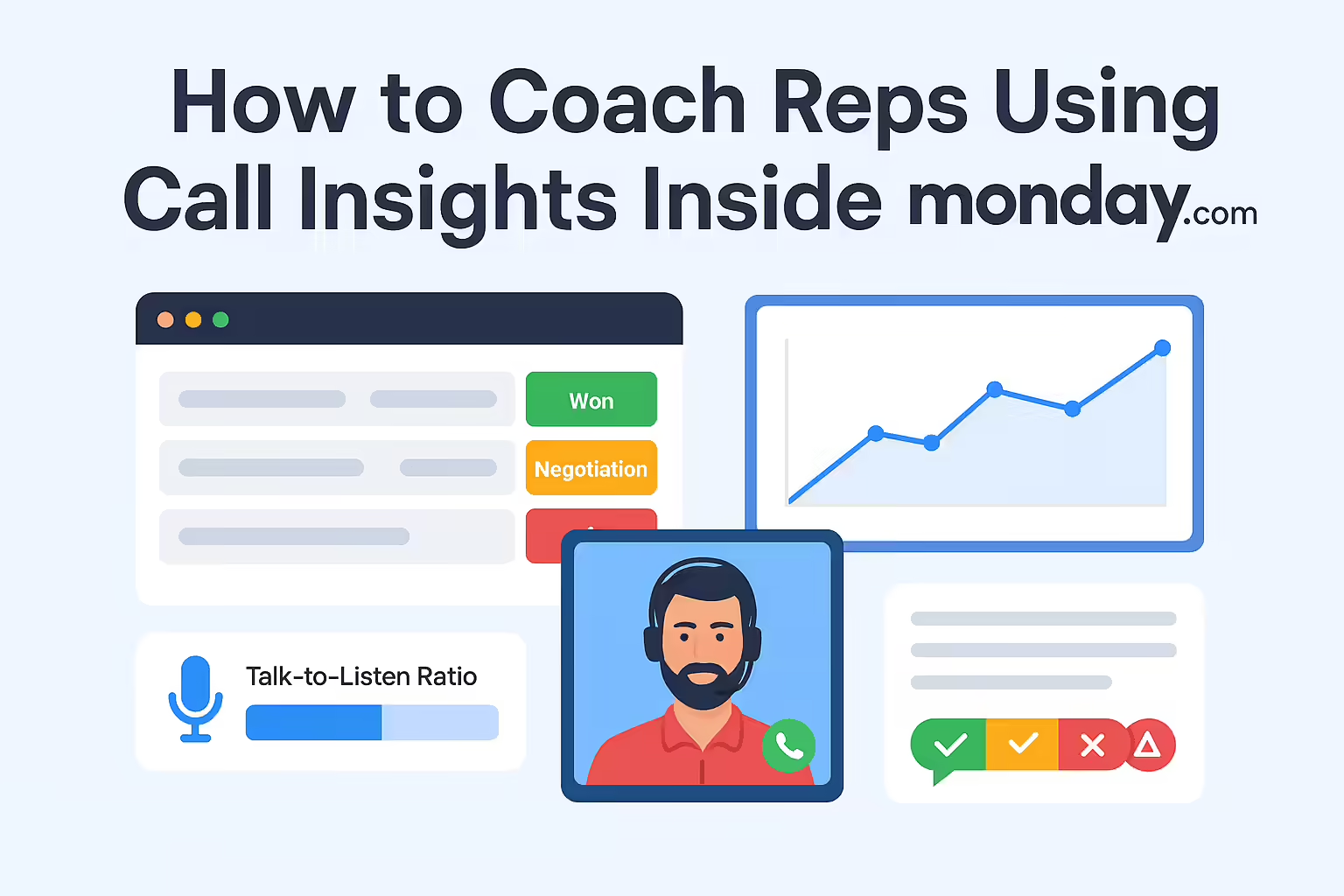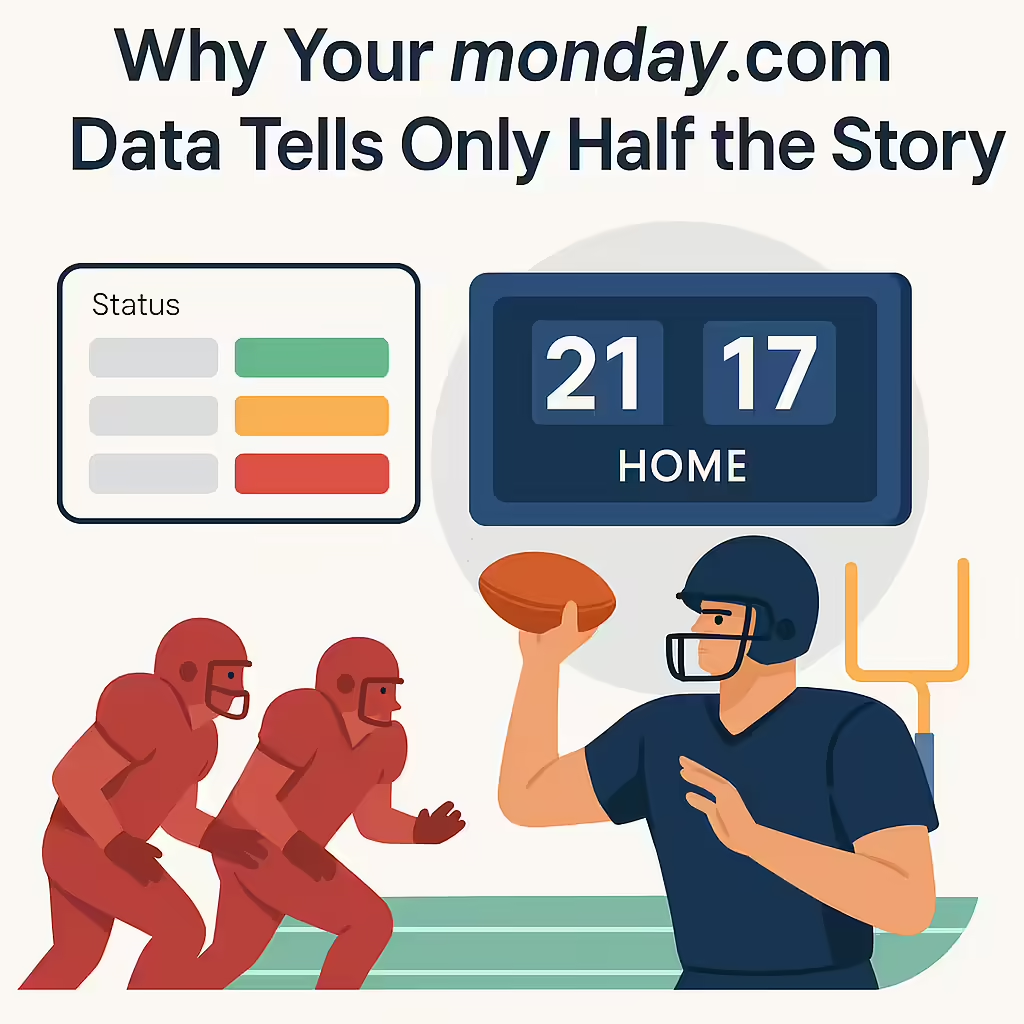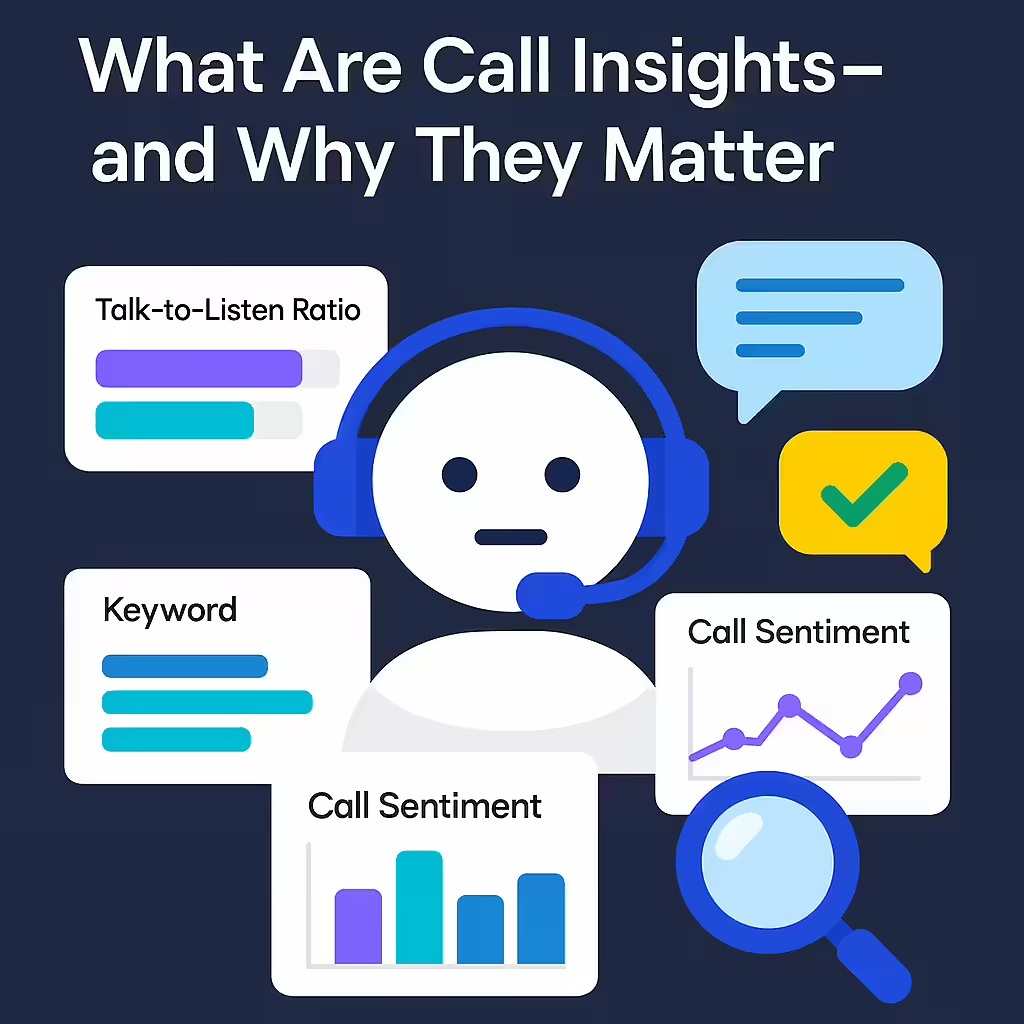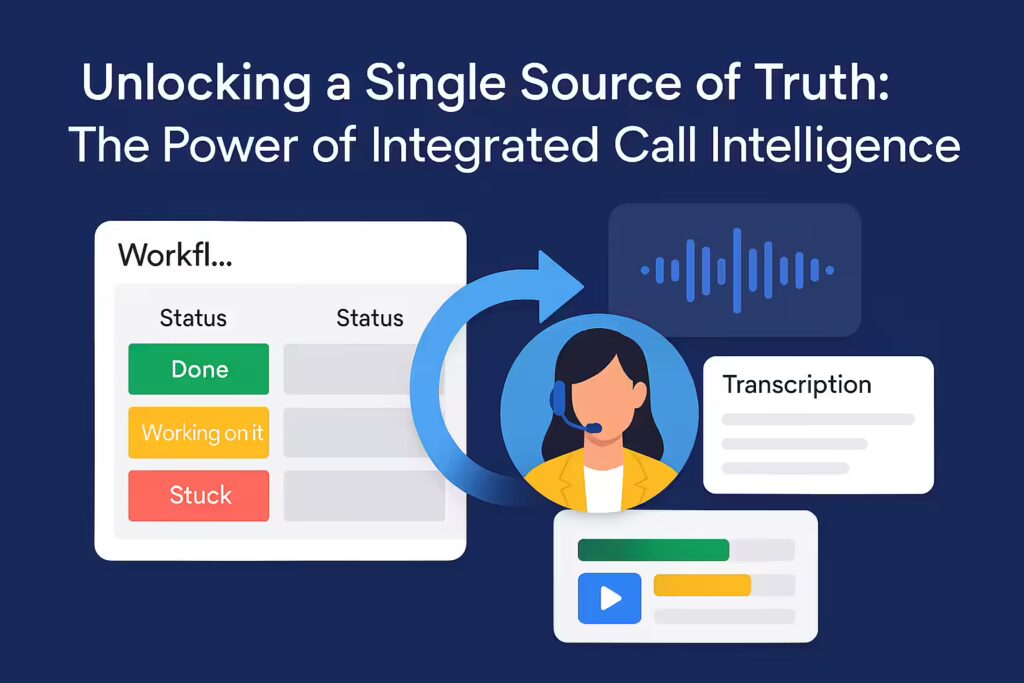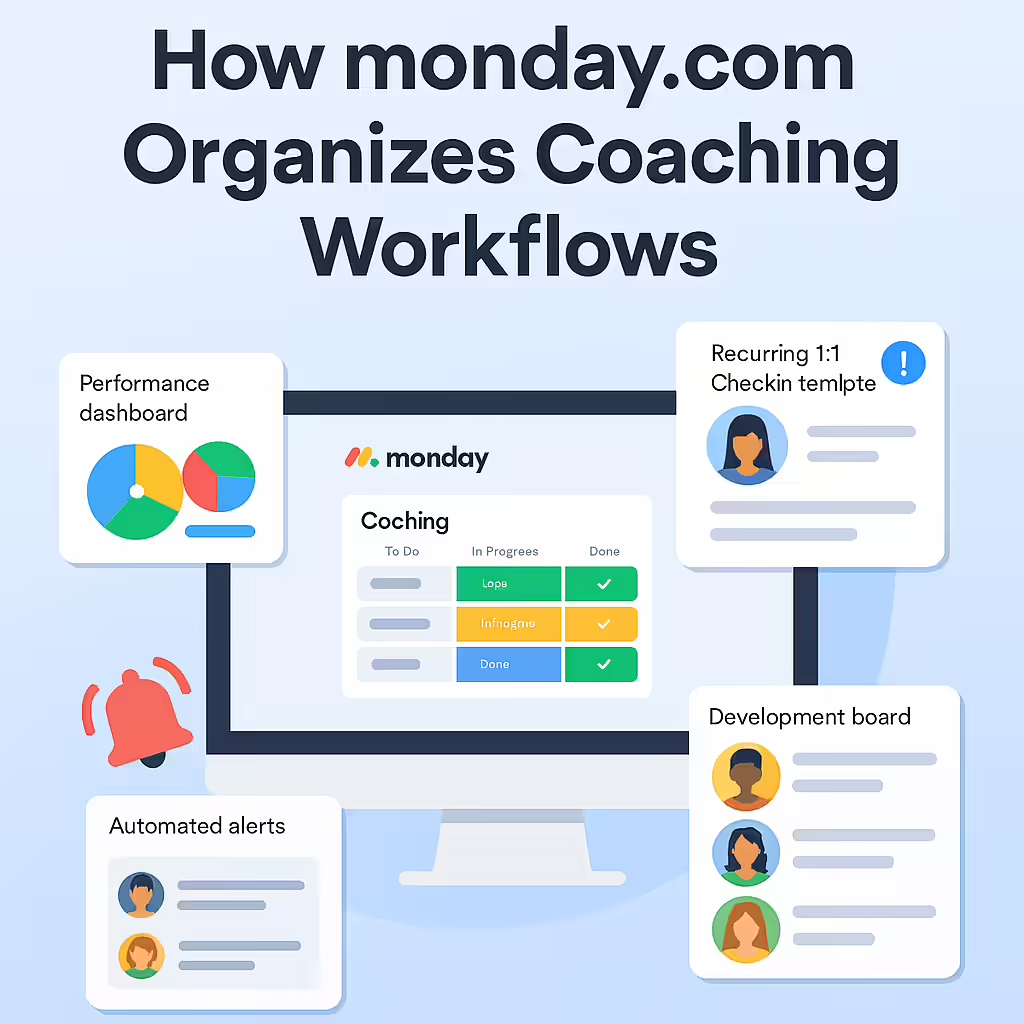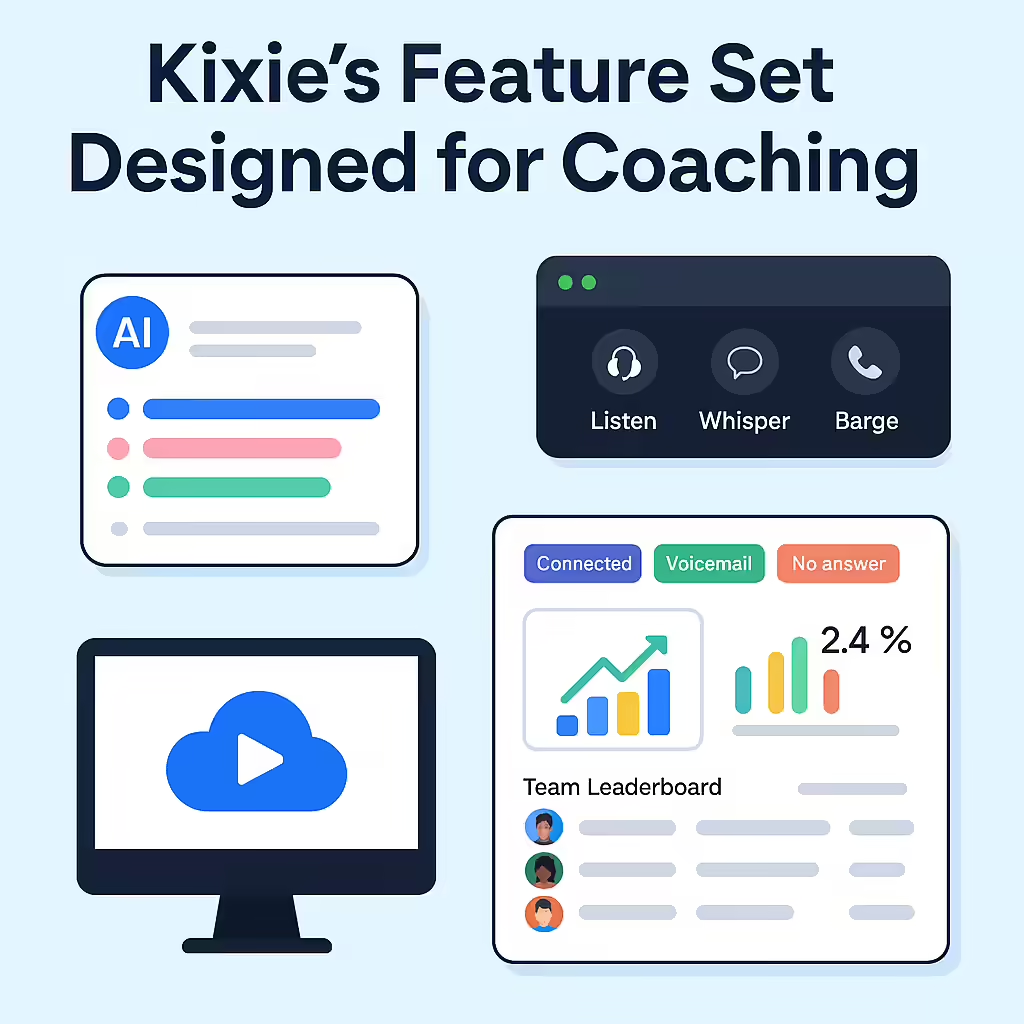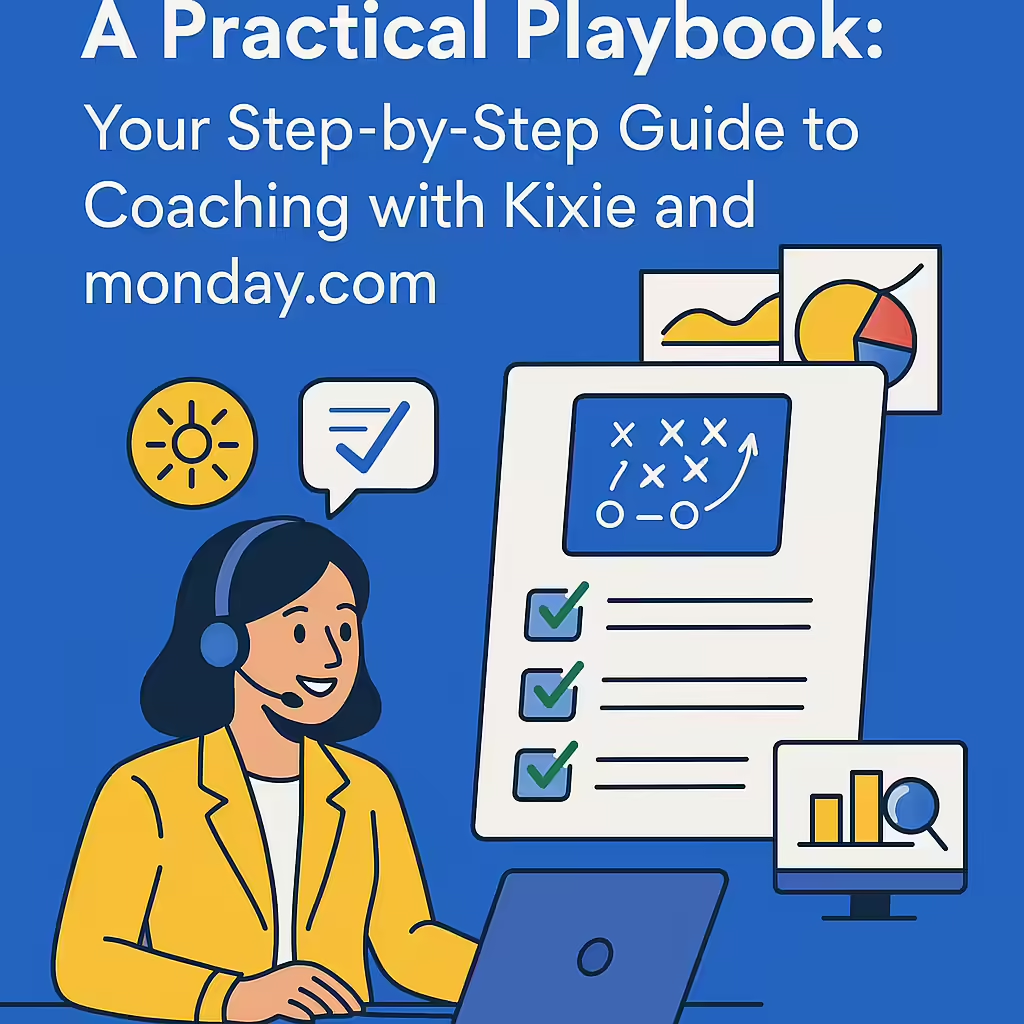Beyond the Board: The Next Frontier for Your Sales Team in monday.com
Your organization has likely made a strategic investment in monday.com, and for good reason. You’ve built visually intuitive sales pipelines, automated away hours of repetitive work, and created a central hub that keeps your entire team aligned on priorities. Your boards are a testament to process optimization, providing a clear, at-a-glance view of every deal, task, and deadline. Yet, despite this high level of organization, a critical question often remains unanswered for sales leaders: Why?
Why did a promising deal suddenly stall in the negotiation stage? Why is one rep consistently outperforming their peers with the same quality of leads? Why is the team struggling to overcome a new competitor’s objection? Your monday.com boards can show you what is happening—a status changed, a deadline missed—but they inherently lack the context to explain the crucial “why” behind these events. This is because the most valuable sales data isn’t generated in a status column or a checklist; it’s created in the live, unscripted conversations your reps have with prospects every single day.
This article addresses the next frontier of sales management within the monday.com ecosystem: evolving your workspace from a passive “system of record” into an active “system of improvement.” It’s about bridging the gap between the structured data on your boards and the unstructured, high-impact data contained within your team’s sales calls. This is the key to unlocking a new level of performance, forecasting accuracy, and scalable coaching that moves beyond guesswork and into the realm of data-driven excellence.
The urgency of this challenge has been magnified by the fundamental shift in how sales teams operate. In a traditional office setting, managers could absorb a wealth of qualitative data through simple proximity. They could overhear a rep struggling with a tough call, observe body language during a pitch, and conduct informal debriefs on the sales floor. This “ambient coaching” provided a critical layer of insight that complemented the hard data within the CRM. With the rise of remote and hybrid work, this organic learning environment has vanished, leaving managers almost entirely dependent on digital tools for visibility. While platforms like monday.com excel at structuring the process of remote work, they offer no native window into the substance of remote sales interactions. The challenge, therefore, isn’t just a missing feature; it’s a fundamental obstacle in modern sales management. A solution that brings conversation data directly into your monday.com workspace doesn’t just add a new capability—it digitally reconstructs the essential visibility and coaching opportunities of a physical sales floor.
Why Coaching Reps with Data Matters More Than Ever
Sales coaching has long been the lever top-performing teams use to level up reps, close more deals, and retain top talent. But traditional coaching methods—often based on gut feelings, scattered notes, or selective call reviews—are no longer enough in today’s fast-paced, data-driven environment. Opinion-based feedback tends to be inconsistent, subjective, and hard to scale. One manager’s advice may contradict another’s, and without clear data, reps are left guessing what “good” really looks like. This leads to uneven performance and wasted coaching time.
Why Your monday.com Data Tells Only Half the Story
Attempting to coach a sales team using only the native data within monday.com is like trying to coach a quarterback by only looking at the scoreboard. You see the final outcome, but you miss the mechanics of the throw, the read of the defense, and the communication in the huddle. This reliance on incomplete information creates a series of interconnected challenges that limit a manager’s ability to effect meaningful change.
First and foremost is the immense administrative burden placed on sales representatives. Research consistently shows that sales reps spend a shockingly small portion of their time—as little as 20%—actually selling. The rest is consumed by administrative tasks, with manual CRM data entry being a primary culprit. This isn’t merely an issue of inefficiency; it directly corrupts the quality of the data that managers rely on for coaching. When every call, outcome, and note must be logged by hand, reps are naturally incentivized to enter the bare minimum required to mark a task as complete. This leads to inconsistent, incomplete, and subjective data that renders dashboards and reports unreliable.
This flawed data forces managers to coach based on “lagging indicators.” A deal stage changing from “Proposal Sent” to “Closed-Lost” is a lagging indicator; it tells you what happened in the past. Coaching based on this information is inherently reactive. It’s a post-mortem, not a pre-flight check. Effective coaching, in contrast, requires analysis of “leading indicators”—the specific behaviors within a conversation that predict future success or failure. These are the moments a rep successfully navigates an objection, uncovers a hidden pain point, or builds critical rapport. These moments are invisible in a standard monday.com setup.
This creates a data integrity paradox. The powerful reporting and dashboard capabilities of monday.com are only as good as the information they are fed. When that information is the product of inconsistent manual entry, the resulting analysis is built on a foundation of sand. This problem is particularly acute for remote teams, where managers cannot shadow calls in person to get an objective sense of performance. They are forced to rely on a rep’s own, often biased, self-assessment, which makes it incredibly difficult to build trust and deliver the nuanced, evidence-based feedback needed for growth.
Over time, this reliance on incomplete data inadvertently creates a culture of “CRM theater.” When a rep’s performance is measured solely by the activity logged in monday.com—tasks completed, items updated, deals moved—they learn to prioritize “managing the CRM” over honing their sales skills. Their focus shifts to ensuring their boards look active and productive to meet management’s expectations. This performance masks the real issues. A manager might see a flurry of updates on a monday.com item and assume progress is being made, when in reality, the rep could be fumbling key interactions on every call. This triggers a negative feedback loop: managers, working from flawed data, provide generic and unhelpful coaching like “you need to make more calls.” Reps, receiving coaching that doesn’t address their actual challenges, become disengaged and less motivated. The limitation, therefore, is not just about missing data; it’s about how that absence fundamentally misaligns incentives, rewards the wrong behaviors, and undermines the entire coaching culture.
What Are Call Insights—and Why They Matter
Enter AI-powered call insights. With modern conversation intelligence tools like Kixie, managers can automatically analyze every call, identify trends, and surface coaching opportunities based on real performance data.
Call insights are the distilled, actionable data points pulled from sales conversations. Rather than manually reviewing calls or relying on instinct, modern sales teams use tools like Kixie’s Conversation Intelligence to automatically extract the most meaningful coaching signals from every interaction.
These insights include metrics such as:
- Talk-to-listen ratio: Is the rep listening more than talking?
- Objection handling: How effectively are common objections addressed?
- Keyword and phrase usage: Are reps following the script? Are they asking the right questions?
- Call sentiment and tone: Are customer emotions being recognized and responded to appropriately?
With these analytics, managers don’t have to guess what’s going wrong—or right. They can pinpoint exact behaviors that correlate with success, replicate what top performers are doing, and address gaps in real time. In short, call insights replace ambiguity with clarity. They empower reps to self-correct, enable managers to coach consistently, and give leadership a high-resolution view of what’s really happening in the sales funnel.
Unlocking a Single Source of Truth: The Power of Integrated Call Intelligence
The solution to the coaching conundrum lies in a category of technology known as Conversation Intelligence (CI). At its core, Conversation Intelligence is the process of automatically recording, transcribing, and analyzing sales conversations to extract actionable, data-driven insights. By bringing this technology into your monday.com environment, you can finally complete the picture, connecting the what from your boards with the why from your calls.
Integrating a CI platform provides sales leaders with a suite of capabilities that were previously unattainable. Managers can:
- Identify Winning Behaviors: CI platforms analyze conversational metrics to pinpoint what separates top performers from the rest of the team. This includes quantitative data like talk-to-listen ratios, question rates, and monologue duration, as well as qualitative insights into the specific language they use to navigate objections or articulate value. This allows managers to move beyond intuition and identify the precise, repeatable behaviors that lead to success.
- Scale Best Practices: The recordings of successful calls become a permanent asset—a “game tape” library that can be used for onboarding new hires and for the continuous development of the entire team. Instead of relying on anecdotal retellings, a manager can share a link to a specific moment in a call where a top rep masterfully handled a pricing objection, turning an abstract concept into a concrete, learnable example.
- Deliver Data-Driven Coaching: Feedback becomes objective and evidence-based. A manager can shift from subjective advice like, “You need to be more assertive,” to precise, actionable guidance: “I noticed at the 2:15 mark of this call, the prospect mentioned a competitor. Let’s review our battle card for them and role-play a stronger response”. This type of specific, targeted coaching is far more effective and is received more positively by reps.
- Surface Real-Time Market Intelligence: Sales calls are a direct line to the voice of the customer. A CI platform can automatically track and trend keywords and topics across all conversations, providing invaluable market intelligence. Managers can quickly identify emerging competitor threats, common feature requests, or shifts in customer pain points without having to manually sift through call notes.
Crucially, the true power of these insights is unlocked when they are deeply integrated with your CRM. When call recordings, transcripts, and AI-generated summaries live directly within the corresponding monday.com item, they provide essential context for every other piece of data. This creates a genuine 360-degree view of the deal, unifying process management with performance management in a single platform.
This integration fundamentally transforms the role of the sales manager. Without call data, a manager’s time in a pipeline review is spent as a “deal inspector.” Their primary function is to audit the rep’s data entry, asking questions like, “Is this forecast accurate?” or “Why has this deal been stalled for two weeks?”. They are managing the data, not the person. With integrated call intelligence, the focus shifts entirely. The CRM data is automatically validated by the call logs, so the conversation is no longer about the status of the deal but about the strategy to win it. The manager evolves into a “performance architect,” using call analytics to identify skill gaps, prescribe specific training from the call library, and track behavioral improvements over time. This elevates their role from a reactive supervisor to a proactive coach who builds scalable, data-driven systems for team improvement, directly impacting revenue growth and team development.
How monday.com Organizes Coaching Workflows
monday.com isn’t just for task tracking—it’s a flexible, visual platform where sales leaders can build custom workflows to support rep development and performance coaching. When paired with call insights from Conversation Intelligence tools like Kixie, monday.com becomes a central hub for managing and scaling coaching across the team.
Sales managers can create boards that monitor rep performance across key metrics, using automations to flag when coaching is needed. For example, a low talk-to-listen ratio or missed follow-up can automatically trigger a coaching task or note for the manager to review.
Here are a few ways teams use monday.com to organize coaching:
- Performance dashboards: Track rep metrics pulled from tools like Kixie and visualize them alongside sales KPIs.
- Recurring 1:1 check-in templates: Standardize weekly coaching sessions with predefined fields for feedback and goal setting.
- Automated alerts: Create rules to notify managers when certain call analytics drop below threshold.
- Development boards: Assign skills-focused tasks, track progress, and log coaching history for each rep.
Best of all, everything is visible to the right people at the right time. Reps know what’s expected. Managers stay accountable. And leadership gets a transparent view of how coaching efforts align with pipeline growth.
Kixie: The Engine for Actionable Call Insights in Your monday.com Workspace
Understanding the need for call intelligence is the first step; the next is choosing the right engine to power it within your monday.com workspace. Kixie is an all-in-one communication platform engineered specifically for high-performance sales teams, providing the critical tools needed to bridge the coaching gap and transform your sales process.
A key consideration for any monday.com user is integration. While Kixie does not have a native, one-click app in the monday.com marketplace, it achieves a powerful, bi-directional sync through widely-used, no-code middleware platforms like Zapier and Make. This modern approach is both flexible and robust, leveraging Kixie’s comprehensive REST APIs and webhooks alongside monday.com’s GraphQL API. This allows you to create sophisticated automations that connect the two systems seamlessly, synchronizing all call and SMS activity without requiring a single line of code or any complex data migration.
Kixie’s Feature Set Designed for Coaching
Kixie’s feature set is designed to directly address the coaching challenges previously identified:
- Automated Call & SMS Logging: This is the foundational feature that solves the administrative burden and data integrity crisis. Every outbound and inbound call, every text message, and every call disposition is automatically logged in real-time to the correct item in your monday.com boards. This creates a perfect, effortless audit trail of every interaction, freeing reps from manual data entry and providing managers with a completely reliable dataset.
- AI-Generated Call Summaries: To make call reviews more efficient, Kixie’s AI automatically generates concise summaries of conversations, capturing key details, action items, and sentiment. This allows managers to get the gist of a call in seconds before diving into the full recording, saving hours of review time each week.
- Live Call Coaching Suite (Listen, Whisper, Barge): This suite of features is the ultimate solution to the remote coaching visibility gap. Managers can silently “Listen” in on any live call to shadow a rep. They can provide private, real-time feedback to the rep using the “Whisper” function, which the prospect cannot hear. And in a critical moment, they can “Barge” into the call to help close a deal or save a conversation that’s going off track. This is an invaluable tool for accelerating the onboarding of new hires and providing on-the-job training.
- Cloud-Based Call Recording Library: All calls are automatically recorded and stored, creating the “game tape” repository essential for scalable coaching. These recordings are linked directly from the monday.com item, making it easy for managers to review performance and for reps to self-coach by listening to their own calls or those of top performers.
- Performance Dashboards & Analytics: Kixie provides a comprehensive suite of reporting tools that give managers the data they need to track key performance indicators. Dashboards for connection rates, call duration, call outcomes, and team leaderboards allow managers to identify trends, spot coaching opportunities, and measure the tangible impact of their efforts over time.
The Transformative Impact: monday.com (Standalone) vs. monday.com + Kixie
The transformation that Kixie brings to a monday.com-centric sales team is best illustrated by a direct comparison of core coaching activities:
| Coaching Activity | Using monday.com (Standalone) | Using monday.com + Kixie |
|---|---|---|
| Call Logging & Data Integrity | Manual data entry by reps; prone to errors, omissions, and delays. Data is often unreliable. | Fully automated; every call, text, and recording is instantly logged to the correct item with perfect accuracy. |
| Performance Review | Based on lagging indicators (deal status, subjective notes). Lacks context on why a deal is progressing or stalling. | Access to objective evidence: call recordings, AI summaries, and talk-time metrics directly within the monday.com deal context. |
| Real-Time Feedback & Onboarding | Impossible. Coaching is always reactive, limited to post-call debriefs and role-playing. | Live listen, whisper, and barge functionality for in-the-moment coaching during actual sales calls. Drastically reduces ramp time. |
| Identifying Skill Gaps | Relies on anecdotal evidence, self-reporting from reps, and guesswork based on outcomes. | Data-driven insights from performance dashboards on connection rates, call duration, and outcomes per rep. |
| Scaling Best Practices | Difficult and manual. Relies on managers verbally sharing tips or documenting best practices that quickly become outdated. | Create a “greatest hits” library of top-performing call recordings. Shareable, searchable, and scalable for team-wide training. |
A Practical Playbook: Your Step-by-Step Guide to Coaching with Kixie and monday.com
To make this transformation tangible, let’s walk through a practical, day-in-the-life playbook for a sales manager using the integrated Kixie and monday.com system. This workflow demonstrates how the technology translates directly into more effective and efficient coaching.
- The Automated Foundation (The Trigger): The process begins the moment a new lead enters your ecosystem. A prospect fills out a form on your website, which automatically creates a new item in your “New Leads” board on monday.com. Through a simple, pre-built workflow in Make or Zapier, this trigger initiates a series of actions: the new lead’s contact information is instantly added to a dedicated “Hot Leads” PowerList within Kixie. The assigned sales rep receives a notification and, with a single click, can start dialing through their list using the Kixie PowerDialer, which dramatically increases outbound efficiency.
- The Single Source of Truth (The Log): The rep connects with the lead and has a 10-minute discovery call. As soon as the call ends, the rep selects a disposition (e.g., “Qualified,” “Needs Follow-Up”) in the Kixie dialer. This action triggers a Kixie webhook that communicates back to monday.com. Instantly, and without any manual work from the rep, a new update appears on that lead’s item in the board. This update contains the call disposition, the duration of the call, a link to the cloud-hosted call recording, and the AI-generated summary of the conversation. The rep has already moved on to their next call, having spent zero time on administrative tasks.
- The Asynchronous Coaching Loop (The Review): Later that afternoon, the sales manager wants to review the day’s key calls. Instead of asking reps for a verbal summary, they simply filter their monday.com board to show all items with a call disposition of “Qualified” from that day. They click into the item from the earlier discovery call. In less than 30 seconds, they read the AI summary to understand the core topics discussed. They notice the summary mentions the prospect brought up budget concerns. The manager clicks the recording link and listens to that specific two-minute segment of the call. They then go back to the monday.com item and add a new update, @mentioning the rep with specific, time-stamped feedback: “@JaneDoe, great job building rapport at the 1:15 mark. Next time a prospect mentions budget this early, try pivoting with this question to re-focus on value before discussing price…” This creates a documented, in-context coaching moment that the rep can review and apply immediately.
- The Live Intervention (The Assist): The manager is monitoring team activity on the Kixie Live Call Board, a real-time dashboard showing who is on a call, for how long, and with which contact. They see a junior rep, who is only in their second week, is on a 20-minute call with a high-value enterprise prospect. Curious, the manager clicks the “Listen” button to silently shadow the call. They hear the prospect ask a complex technical question that the new rep is struggling to answer. To prevent the call from derailing, the manager clicks the “Whisper” button. They privately feed the correct answer and a follow-up question directly to the rep. The rep confidently relays the information to the prospect, who is impressed by their knowledge. The prospect is unaware the manager was ever involved, and the rep gains a valuable learning experience in a live-fire scenario.
- The Performance Analysis (The Measurement): At the end of the week, during their one-on-one with the junior rep, the manager pulls up the Kixie Business Snapshot dashboard. They filter the data for that specific rep and can clearly see that since they began targeted coaching, the rep’s average call duration has increased (indicating more substantive conversations) and their connection rate is up by 15%. They have objective data to prove the coaching is working. To celebrate the progress, the manager takes a screenshot of the weekly sales leaderboard, where the new rep has climbed several spots, and posts it in the team’s Slack channel to provide public recognition and motivate the rest of the team.
This closed-loop system eliminates the guesswork and lag that typically plagues coaching. Instead, managers spend more time on what matters: helping reps grow and win more deals.
Advanced: Automate It All with the Kixie API
For teams ready to take automation to the next level, the Kixie API offers deep integration capabilities that go far beyond what no-code tools can deliver.
With the API, you can build custom workflows that automatically push call insights, trigger coaching tasks, or update monday.com dashboards based on real-time rep performance. This isn’t just about saving time—it’s about building a feedback system that’s smart, scalable, and always on.
Here are a few things you can automate using Kixie’s robust API:
- Call Event Triggers: Automatically detect when a call meets certain coaching criteria—like low sentiment or missed questions—and push that data to monday.com.
- Task Creation: Use API endpoints to create and assign coaching tasks, complete with links to call recordings and feedback forms.
- Performance Dashboards: Sync call outcomes, talk ratios, and keyword insights directly to rep scorecards in monday.com.
- Custom Notifications: Alert managers in Slack or monday.com when high-priority coaching moments occur—like a rep mishandling a key objection or veering off-script.
Best of all, Kixie’s API is well-documented and built for modern development teams. Whether you’re using RESTful calls or integrating via middleware like Make or Zapier, you’ll find plenty of flexibility to tailor the integration to your team’s needs.
Explore the full API and webhook docs here.
Transform monday.com into Your Team’s Ultimate Performance Hub
You have already laid the groundwork for a highly organized and efficient sales process by choosing monday.com. Your boards, automations, and dashboards provide an unparalleled structure for managing your pipeline. The next logical and most impactful step in your team’s evolution is to enrich that structure with the one data source that reveals more about sales performance than any other: the voice of your customer.
By integrating Kixie with your monday.com workspace, you are not simply adding another tool to your tech stack. You are creating a unified performance hub where process management and skill development converge. You are breaking the negative cycle of manual data entry and reactive coaching, and replacing it with a virtuous cycle of automated data capture, objective analysis, and proactive, data-driven guidance.
This transformation delivers tangible, business-critical outcomes:
- Reduce Administrative Overhead: Eliminate approximately 80% of the manual work associated with logging calls and texts, freeing up your reps to focus their valuable time on selling and building relationships.
- Accelerate Onboarding and Ramp Time: Slash the time it takes to get new hires to full productivity from months to weeks by leveraging live, on-the-job training and a comprehensive library of best-practice call recordings.
- Coach with Unprecedented Precision: Move beyond guesswork and anecdotal feedback. Use hard data and objective evidence from call analytics to identify specific skill gaps and turn your B-players into A-players.
- Drive Revenue Growth: More effective coaching directly leads to higher conversion rates, larger average deal sizes, and more predictable revenue. When managers can pinpoint and scale what works, the entire team’s performance improves, leading to more closed deals and more accurate forecasting.
Your monday.com workspace is powerful, but without insight into your sales conversations, you’re only seeing half the picture. It’s time to bring your team’s performance into full view.
Ready to unlock the full coaching potential of your monday.com workspace? Start your free 7-day Kixie trial today. No credit card is required. Connect it to your monday.com account in minutes and see for yourself what you’ve been missing.


